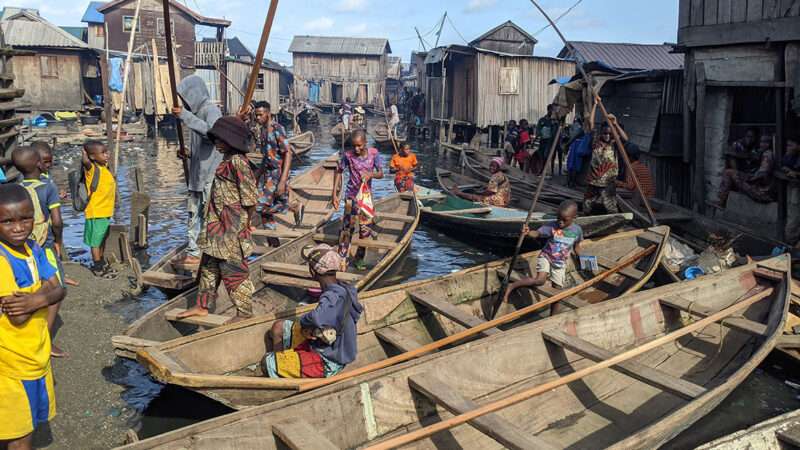
Victoria Island, Nigeria—"Sorry, you can't enter. Next time, call our sales office in advance."
That was the greeting my three-man detail and I got after enduring the multihour traffic slog from mainland Lagos to Eko Atlantic. I had never considered that such a high-profile real estate project, launched in 2009, would still be gated to visitors. And when we peered past the guard, it did not seem like much was happening inside. Eko was a smattering of stand-alone high-rises popping up from a barren landscape.
"You'll have to return tomorrow," the guard said.
So we decided that day, and much of the rest of my two weeks in Lagos, to visit the city's many illegal shantytowns instead.
They had a different setup: Anyone can enter, and people were particularly welcoming of me, a rare white visitor. The areas are full of commerce, like linear Walmarts, with anything for sale on a given block. They don't have Eko's media buzz—some even carry stigmas—but they're more functional.
This comparison speaks to a paradox I've found with African real estate. The more "formal" a project is—with master plans, institutional investors, and government involvement—the more slowly it materializes. The more "informal" it is, with minimal rules other than how locals self-govern, the more quickly it becomes a real city.
But maybe that's not odd.
Eko Atlantic had been on my travel bucket list for years. I'm currently on an 18-month trip through the Global South, spending six months apiece in Latin America, Africa, and Asia. One goal is to visit the rising crop of "startup cities" in each region. These are private, for-profit, master-planned projects, often built with government collaboration, that look to compete with and decentralize crowded city cores.
Eko might be the continent's most-discussed startup city, aiming to become "the Dubai of Africa." A partnership between the firm South Energyx Nigeria Limited and the state and federal governments, it is a massive land reclamation project. They're using dredged-up fill to build what will be a four-square-mile city, buttressed with a sea wall to prevent flooding in Lagos.
The plan is to create a gated city and financial and lifestyle hub for international elites. It will have stable laws, a "free zone" status full of tax and regulatory benefits, a canal system with water taxis (again, think Dubai), and a somewhat hands-off land use regime, reflected by those few early skyscrapers.
Already, condos start at $700,000 and rise to seven figures. The trend should continue upward once the new $537 million U.S. consulate building, the largest of its kind in Africa, is occupied. Eko has received gushing media coverage and Clinton Global Initiative sponsorship. The long-term goal is to house 250,000, a population density mirroring Manhattan.
Yet 14 years in, Eko is a ghost town.
The Africa-based YouTuber Steven Ndukwu has some theories about why it remains empty, including weak currency and the low wages of average Nigerians relative to the high land prices in Eko. Development director Pierre Edde, who we were able to meet on our second visit, made similar excuses. Nigeria suffered, he said, through eight years of dismal economic performance under former President Muhammadu Buhari, causing sharp average income declines even before COVID-19.
But the most important reason seems self-evident: Eko built a wall isolating itself from the rest of Lagos. It's no more accessible to women outside selling water from buckets on their heads than it was to me, an accredited investor who still could not enter after explaining my mission to the gatekeeper.
Lagos' slums, by contrast, thrive, despite dealing with the same macroeconomic conditions as Eko. After interviewing Edde, we visited Makoko, a fishing village that actually does have a population of 250,000. Dubbed "the world's largest floating slum," it was settled illegally in the 1800s by Egun tribesmen and remains a makeshift port. Some residents live on land, but many live out in the water on stilted housing, navigating through a system of private canoe taxis.
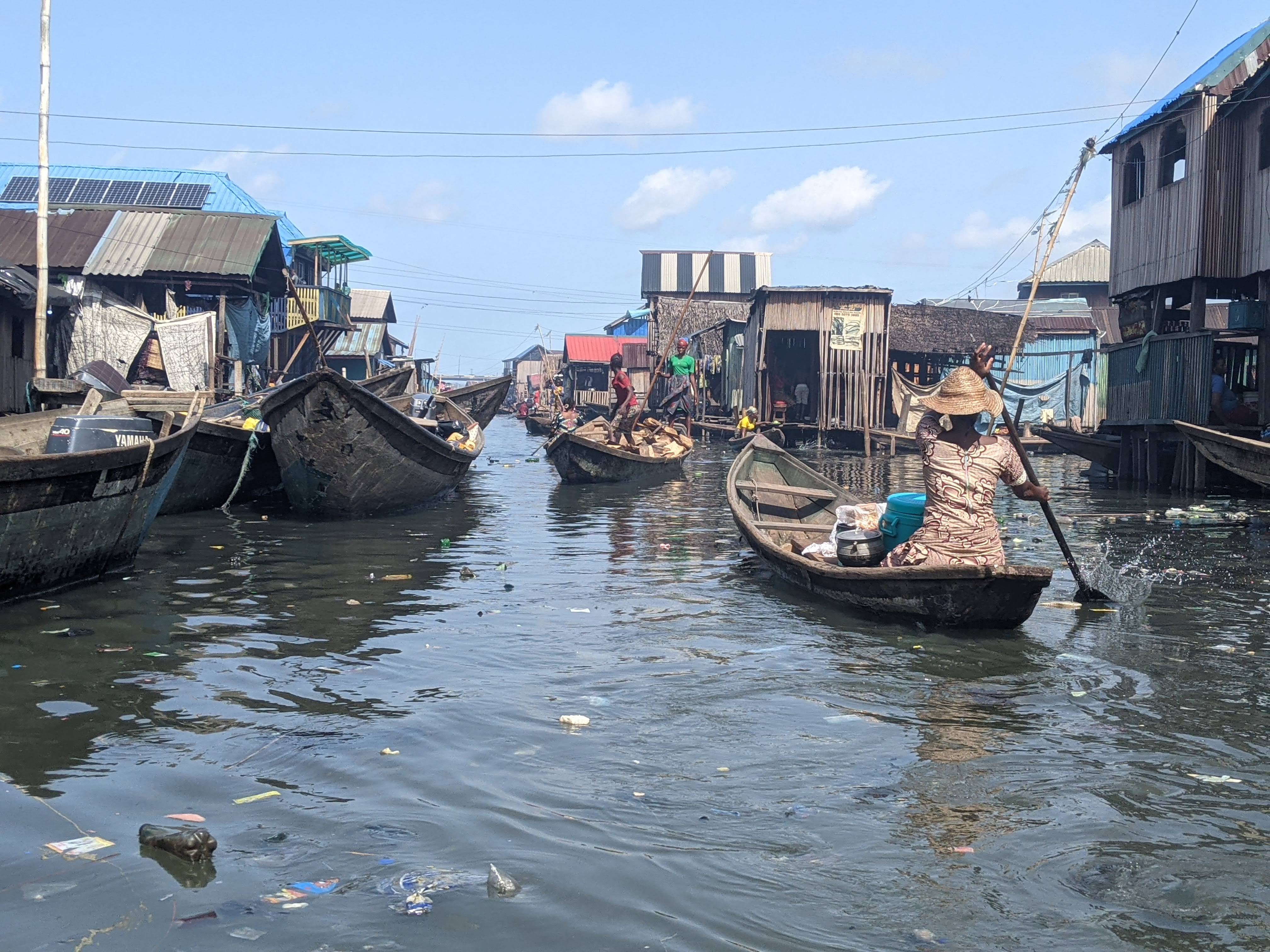
Makoko's economy features a mix of lumber trading with villages up the lagoon and fishing on small wooden motorboats. Fish are smoked in residents' kitchens, leaving a cloud over the neighborhood, and transported to markets across Lagos.
Makoko does not have a public government, but chiefs there provide schools, security, and well water and manage neighborhood planning. (The place's only apparent interaction with outside governments is when it's constantly threatened with seizure and demolition.)
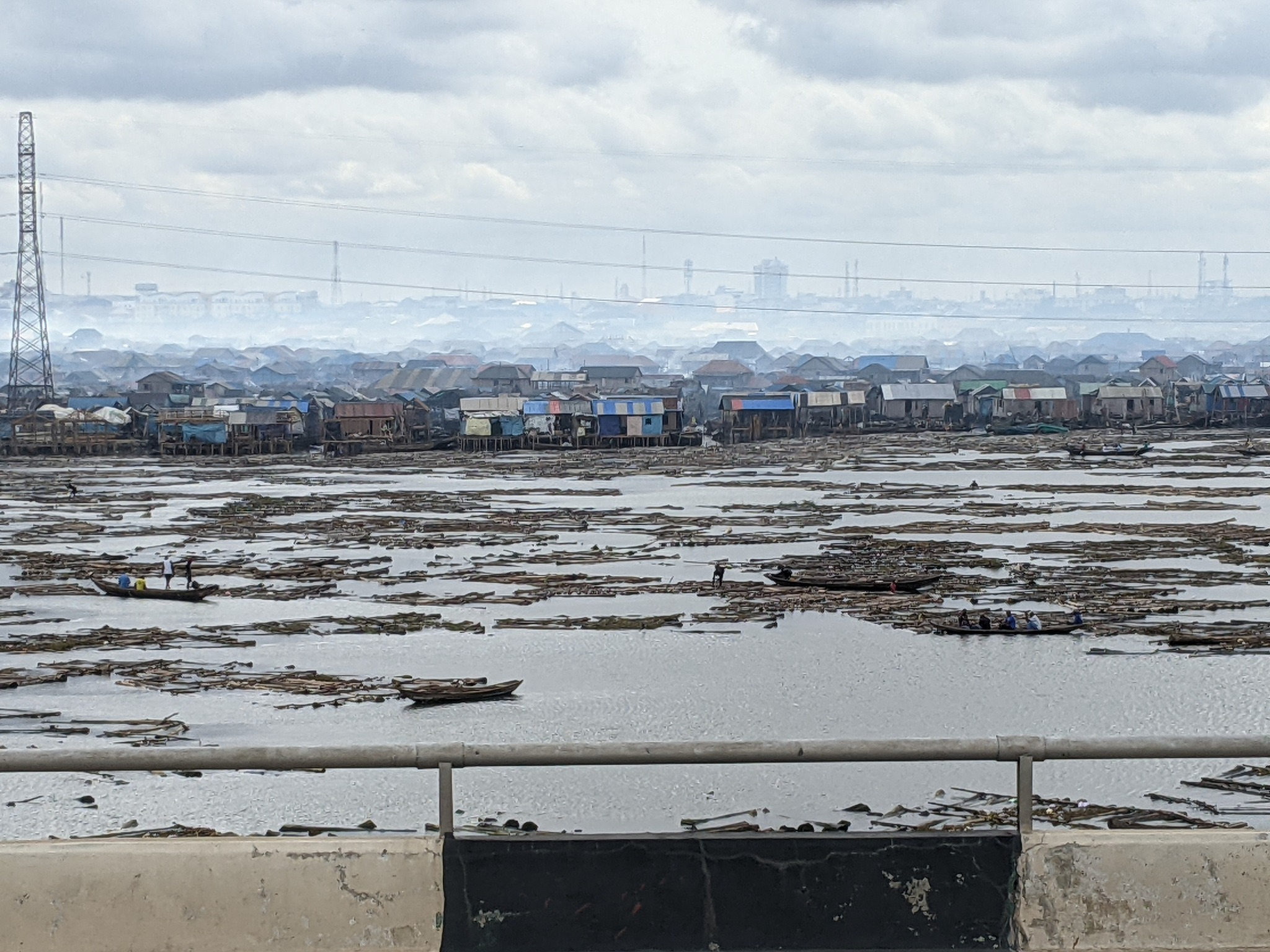
When touring the waterways with one chief, a 24-year-old school administrator named Wheduto Urban January, I found supermarkets, barber shops, and restaurants. Once we returned to land, there were even more options, with a large business ecosystem weaving through the alleyways.
Such ingenuity is common in other slums. Days later we visited Agege on the northwest side. It too is packed with markets, including one that, due to lack of space elsewhere, has grown organically along the train tracks. The area has become known as a place to buy furniture, with patrons hopping off the line and back on with their new cabinets and beds. When a new train arrives, every few hours, merchants move their belongings to let it pass. They reoccupy the tracks afterward.
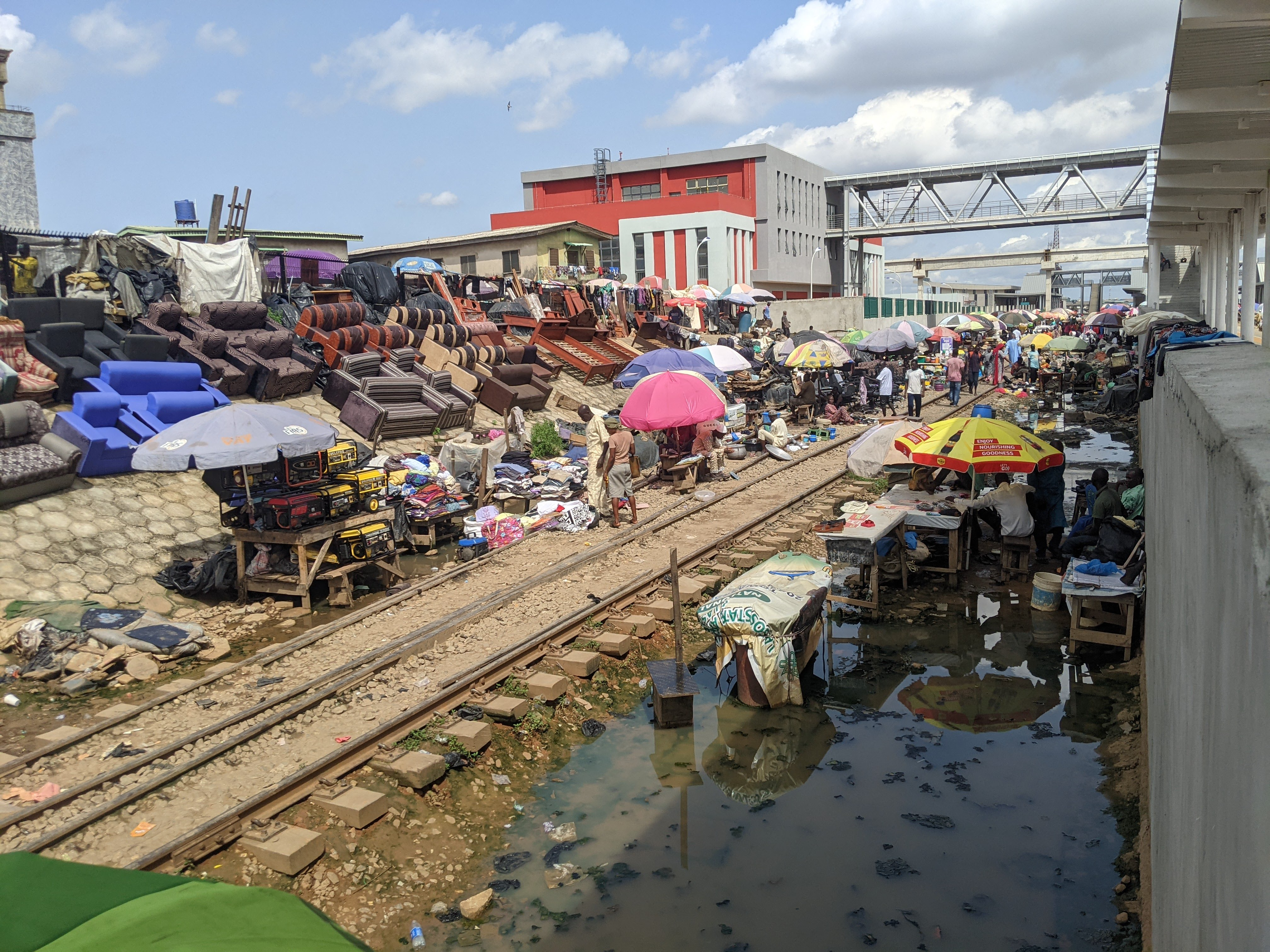
My intent here is not to down-talk Eko Atlantic, or to paint too rosy a picture of Lagos' unsanitary slums. But there are lessons they can learn from each other.
Startup cities are important in the "competitive governance" trend, showing how liberalized special jurisdiction status can disrupt old city-management models. But a mix of government and corporate processes means heavy bureaucracy, sterile planning, and slow growth. Slums have the opposite problem. The lack of clear laws and titles discourages large-scale investment. Weak public governance causes collective action problems, from sewage overflow to gang violence.
But slums also have a low barrier to entry that attracts thousands of sole proprietors into unregulated (illegal) spaces. From there the neighborhoods grow organically. They have been described as "spontaneous order," "planned chaos," "emergent urbanism," "fine-grained urbanism," and "incrementalism." With time, they become complex economies that foster upward mobility, a Jane Jacobs dream.
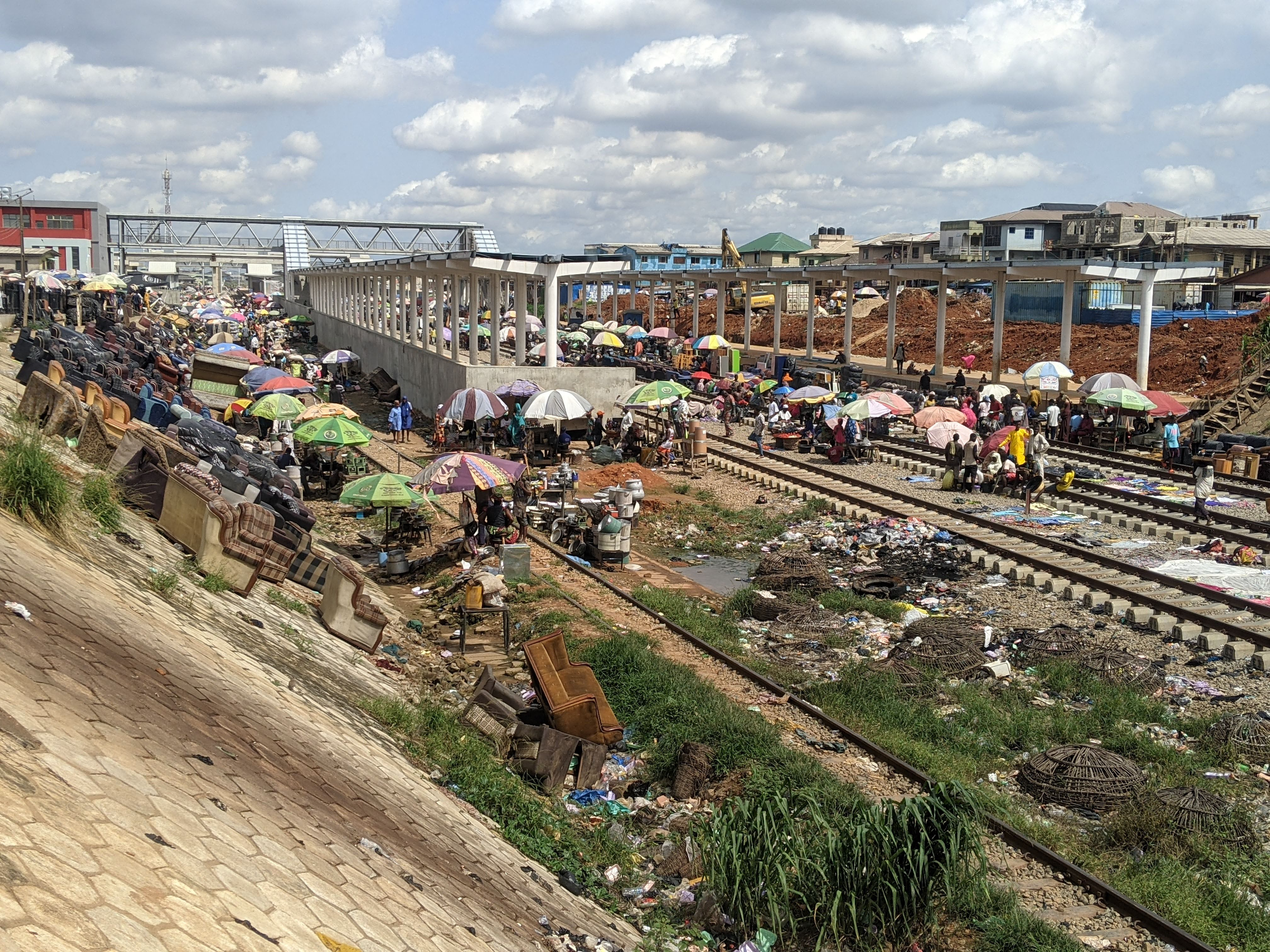
Many of Africa's planned developments, from public housing projects to private "startup" ones, neglect this opening stage. In wanting to appeal to investors, upscale clients, famous consultants, and the political class, they aim for a finished development state.
The best way Eko could jump-start itself is by leaning into Nigeria's core advantage: the tremendous entrepreneurial energy that exists on every street corner, including the ones right outside its gate. "Phase 1" need not mean (as it often does in these megaprojects) sitting on fallow land for decades waiting for large developers. It could mean activating the land early with short-term leases to food cart operators who serve lunch to construction workers. Eko could at the same time offer such solopreneurs better security.
There's nothing like that currently in Eko. Instead, it's courting high-end clients who have many options and may never think to live in Nigeria. If the urbanism strategy of this and similar projects doesn't change, I might return in another 14 years and find the same Potemkin villages.
The post Africa's Planned Cities Need Unplanning appeared first on Reason.com.







